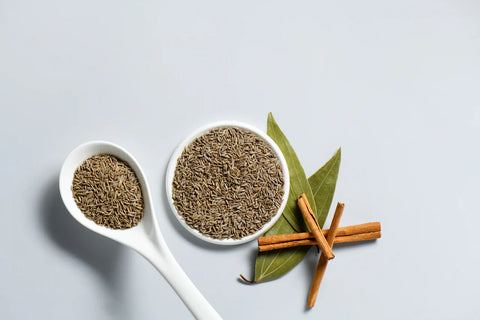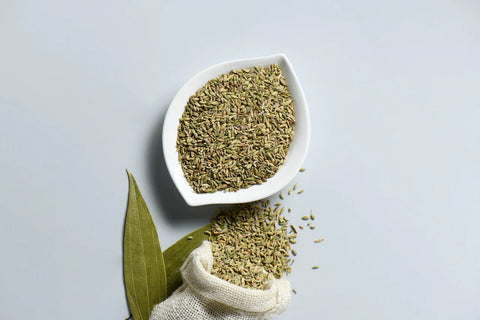Our Journey with Cinnamon
Did you know ancient Egyptians used cinnamon in their embalming process? This fragrant spice, derived from the inner bark of tropical trees, is more than just a kitchen staple. Imagine warm cinnamon sticks nestled amongst swaying palm fronds – a hint of its exotic origins. In this blog, we'll journey through cinnamon's rich history, explore its diverse types, uncover its myriad uses, and delve into its surprising health benefits.
History of Cinnamon
Way back in ancient times, folks in Egypt used cinnamon when they wrapped up mummies. The Romans also really liked its smell and taste. Because cinnamon wasn't easy to find, people traveled across lands and seas to trade it. This made it a big deal in the world! Different cultures started using cinnamon in their special foods and their traditions, showing just how important and loved this spice has been for ages.
Types of Cinnamon
Ceylon Cinnamon: Known as "true cinnamon," it boasts a subtly sweet and delicate flavor with a fine, brittle bark. Often used in desserts and beverages, it's praised for potential health benefits like blood sugar control.
Cassia Cinnamon: This more common type has a robust, warm, and slightly spicy flavor with a thicker, tougher bark. It is excellent for baking and savory dishes, and offers similar, though often stronger, health properties.
Other Varieties: Beyond Ceylon and Cassia, other cinnamons like Saigon and Korintje exist, each with unique flavor profiles and varying levels of coumarin content.
Health Benefits of Cinnamon
Cinnamon is packed with antioxidants that fight damaging free radicals in the body. It may also help reduce inflammation. Some studies suggest cinnamon can play a role in regulating blood sugar levels. Additionally, it shows promise for supporting heart health, boosting brain function, and possessing antimicrobial properties.
Culinary Use of Cinnamon
Cinnamon tastes great in sweet foods like cinnamon rolls and apple pie. Nowadays, people even put it in ice cream and other yummy desserts! But it's not just for sweets. You can also add it to savory foods like stews and curries, and it tastes good with meats like lamb and chicken. Plus, you can put cinnamon in drinks like tea and coffee or try special drinks like Mexican canela. It makes everything taste warm and a little bit special.
Tips for Buying Cinnamon
To choose high-quality cinnamon, look for Ceylon cinnamon if you prefer a delicate flavor and lighter color. For a stronger taste, cassia is a good choice. Consider buying whole sticks for longer freshness and grinding them yourself. You can find excellent options at organic stores and vibrant spice markets. Of course, you can also get our premium, carefully sourced cinnamon right here at Palm Tree!
About Palmtree
At Palm Tree, you’ll get the best quality spices at the best prices. We source our cinnamon from the places where it grows best, so it has an authentic smell and real taste. We have different kinds, from the mild Ceylon to the stronger Cassia. When you get cinnamon from Palm Tree, you're getting a taste of the places it comes from, and we make sure it's the best quality for you.
FAQ’s
What is the benefit of eating cinnamon?
Eating cinnamon gives you antioxidants and might reduce swelling. Some studies say it
can help manage blood sugar.
What is cinnamon called in India?
In India, cinnamon is generally called "dalchini" in Hindi.
What happens if we drink cinnamon water daily?
Drinking cinnamon water daily might offer antioxidant benefits and could potentially aid
blood sugar control for some.
Is cinnamon good for skin?
Cinnamon's antioxidants and potential anti-inflammatory properties might benefit skin,
but use it cautiously and in moderation.











